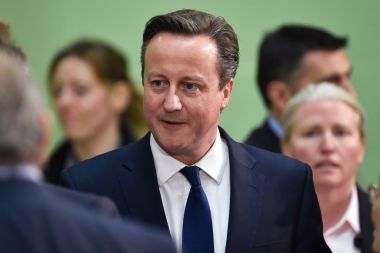Unity, defence, health and welfare: Four key challenges for David Cameron's next term

The scale of the Conservative general election victory is staggering. This is not so much for the overall majority David Cameron looks likely to command – a BBC forecast gives him a total of 329 seats, nothing like 179-seat majority enjoyed by Tony Blair in 1997 – but for the way in which he has confounded the pollsters. Once again, that industry is left with egg on its face and looking about as reliable as a newspaper horoscope.
However, alongside his natural feelings of elation, Cameron should also be aware of the challenges lying ahead for his government, which are at least as great and in some ways greater than those it faced five years ago. Among the questions he must answer are:
1. How will you bring the nation together again?
The Conservatives lost Scotland years ago. Now Labour has lost it too, in a shocking blow to the party. Many voted SNP because they liked its left-of-centre social democratic policies; they are not dissimilar to those of Labour, but the perception was that Labour had not delivered them in government and that the SNP just might. However, the pressure for another referendum is now on, and next time the result might be very different. Cameron will have to walk a very fine line between honouring the wishes of the Scottish people, who voted for a party to whose principles he is viscerally opposed, and breaking up the Union.
And it is not just Scotland: the North/South divide has become even more pronounced in this election, the call for a national parliament for England is likely to become even more strident, and all the bonds that united us appear to be fraying. Can David Cameron be a unifying figure?
2. How will you defend these islands?
On the 70th anniverary of VE day, the question has a particular resonance. In this election, Defence is the dog that didn't bark. The world is arguably more dangerous today than at any time since the end of the Cold War. The nuclear deal with Iran – still not signed and sealed – contains within it an implicit admission that the West can't stop Iran going nuclear if it wants to, but only delay it; North Korea is increasing its nuclear capacity at a terrifying rate. With Putin's expansionism in Europe and the depredations of Middle East terror groups, all of these factors call for a high degree of military preparedness and far greater resources than we have at present. But no party was willing to commit funds to increasing or even maintaining the defence budget.
3. How will you care for the vulnerable?
Most of the questions Cameron faces could be asked of any incoming prime minister. However, this one is a specifically for Conservatives. The Chancellor, George Osborne, said that he would cut £12 billion from the welfare budget during this parliament. Out of a total welfare spent of around £167 billion, that doesn't seem too bad. However, around £93 billion of that is ring-fenced for essentials like pensions; £12 billion from the remaining £74 billion looks much more serious. Where will the axe fall? Disability support? Child welfare? Housing? Employment Support Allowance? One of the persistent criticisms made of the last Government by the Churches related to its record on the treatment of vulnerable people through a punitive regime of benefits sanctions. If cuts are made on the scale promised, that chorus of outrage will only get louder.
4. How will you keep us healthy?
The NHS is, on many counts, the best health system in the world. However, GP appointments are increasingly hard to come by, scandals are routine and in many hospitals the Accident and Emergency service is close to collapse. Yet the system is facing an estimated £30 billion shortfall by 2020 even as things stand. The plan, such as it is, is to recoup £22 billion of that through 'efficiency savings' – a figure derided by most professionals as wholly unrealistic – leaving £8 billion to be topped up by Government. So another question for Cameron's government is how it will live up to its responsibility to ensure the health of the nation – all of it, not just those fortunate enough to be able to afford private health insurance.
The next five years will see our political leaders – all of them, not just those in Government – tested to their limits. In many ways the record of the previous Coalition government is commendable, and the electorate judged as much. But the scale of the challenges ahead, national and international, is daunting. Christians of whatever political persuasion will want to pray for our new Government and our new Parliament: that they will show courage, humility, generosity and wisdom.











